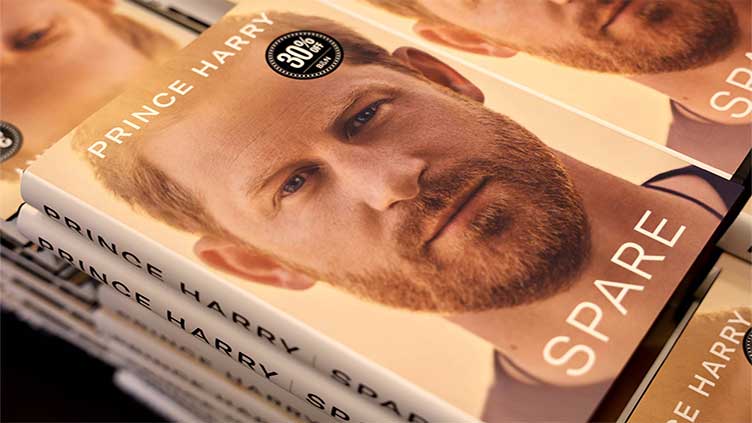Dish from Harry, one of their own, could fuel royal change

Entertainment
Dish from Harry, one of their own, could fuel royal change
LONDON (Web Desk) - In public, they present a united front — always. But Prince Harry has a very different story to tell about the British royals and the way they operate.
Harry’s explosive memoir, with its damning allegations of a toxic relationship between the monarchy and the press, could accelerate the pace of change already under way within the House of Windsor following the death of Queen Elizabeth II.
Harry’s description of royals leaking unflattering information about other members of the family in exchange for positive coverage of themselves is but one of the more tawdry allegations in his book, “ Spare,” published this week. The prince singled out King Charles III’s wife, Camilla, accusing her of feeding private conversations to the media as she sought to rehabilitate her image after her longtime affair with Charles when he was heir to the throne.
Far from the unity that is presented in public, the royal family and their staffs are depicted as scheming rivals, ready to stab each other in the back to make themselves or their bosses look better in the public eye. The palace that Harry describes resembles a modern version of the court of King Henry VIII, where courtiers jockeyed for the monarch’s favor and some lost their heads.
The book leaves the impression of a deeply dysfunctional British royal family whose members are so concerned about the tabloid press that they are forced to make deals with journalists, says Ed Owens, author of “ The Family Firm: Monarchy, Mass Media and the British Public, 1932-53.” And the public, when faced with this proposition, may think twice.
“I think there needs to be some kind of reset, and we need to think carefully about what the monarchy is, what role it plays in society,” says Owens, a historian. “Because this idea of `we, the British taxpayers, pay and in return they perform’ — it’s really a broken and corrupting kind of equation.”
Largely funded by taxpayers, the monarchy plays a mostly ceremonial role in British society these days — masters of soft power. But supporters argue that the institution still serves a vital role, uniting the country behind shared history and traditions embodied in both the grandeur of royal ceremonies and the day-to-day work of royals as they open schools and hospitals and hand out honors to those who serve the nation.
News coverage of the royal family generally falls into one of two categories: carefully orchestrated public appearances or sometimes chaotic stories about the private lives of royals based on unidentified sources.
But change may be at hand.
The history of colonialism — so deeply intertwined with the crown — is being re-examined around the world. Protesters have torn down or defaced statues in British cities, and internationally respected universities such as Oxford and Cambridge are changing their course offerings.
It all adds up to one thing: An institution that was once the symbol of the British Empire is facing scrutiny as never before.
Charles, who became king after the death of Queen Elizabeth II in September, faces the challenge of modernizing Britain’s 1,000-year-old monarchy to guarantee its survival. He has already said he plans to reduce the number of working royals and reduce the cost of the monarchy.

